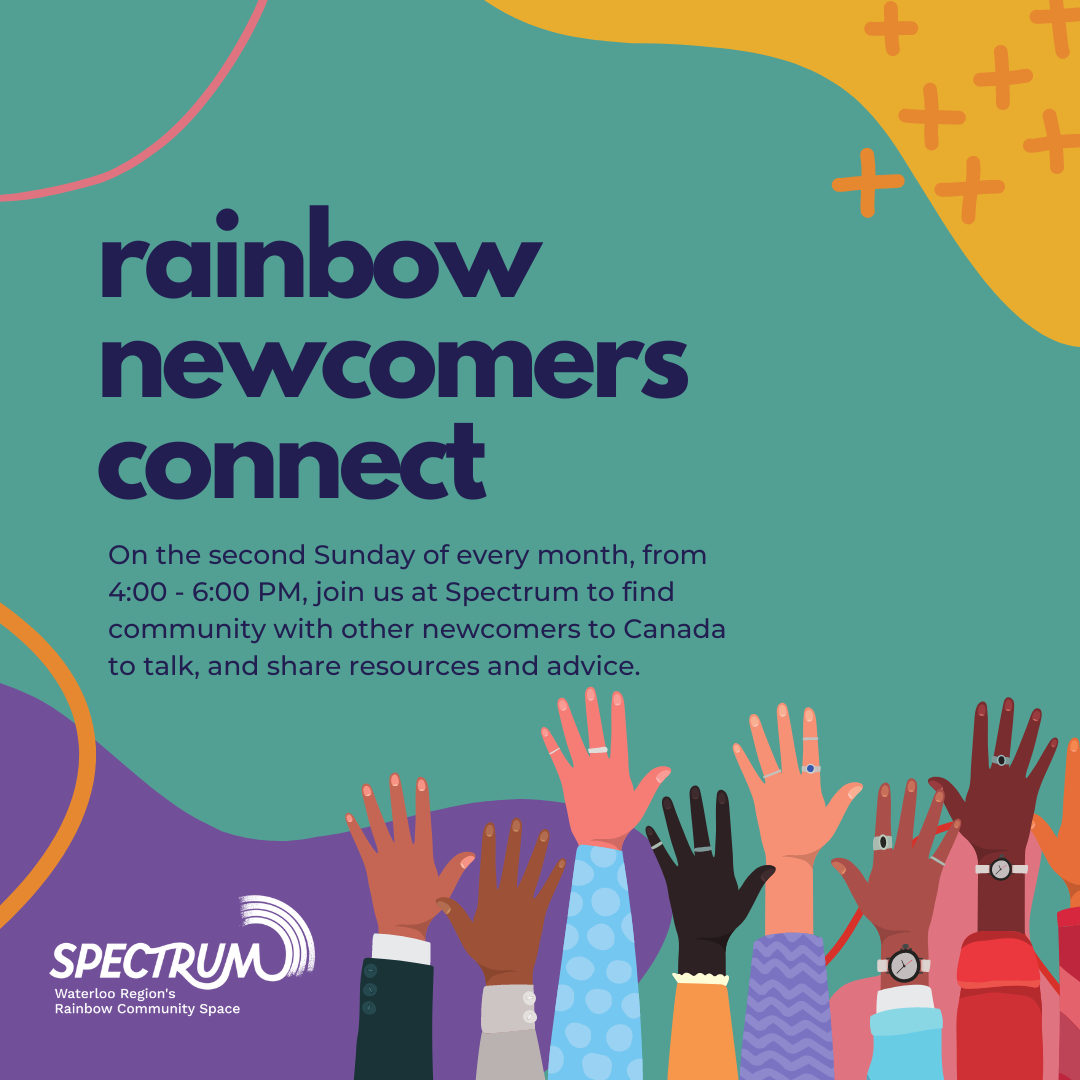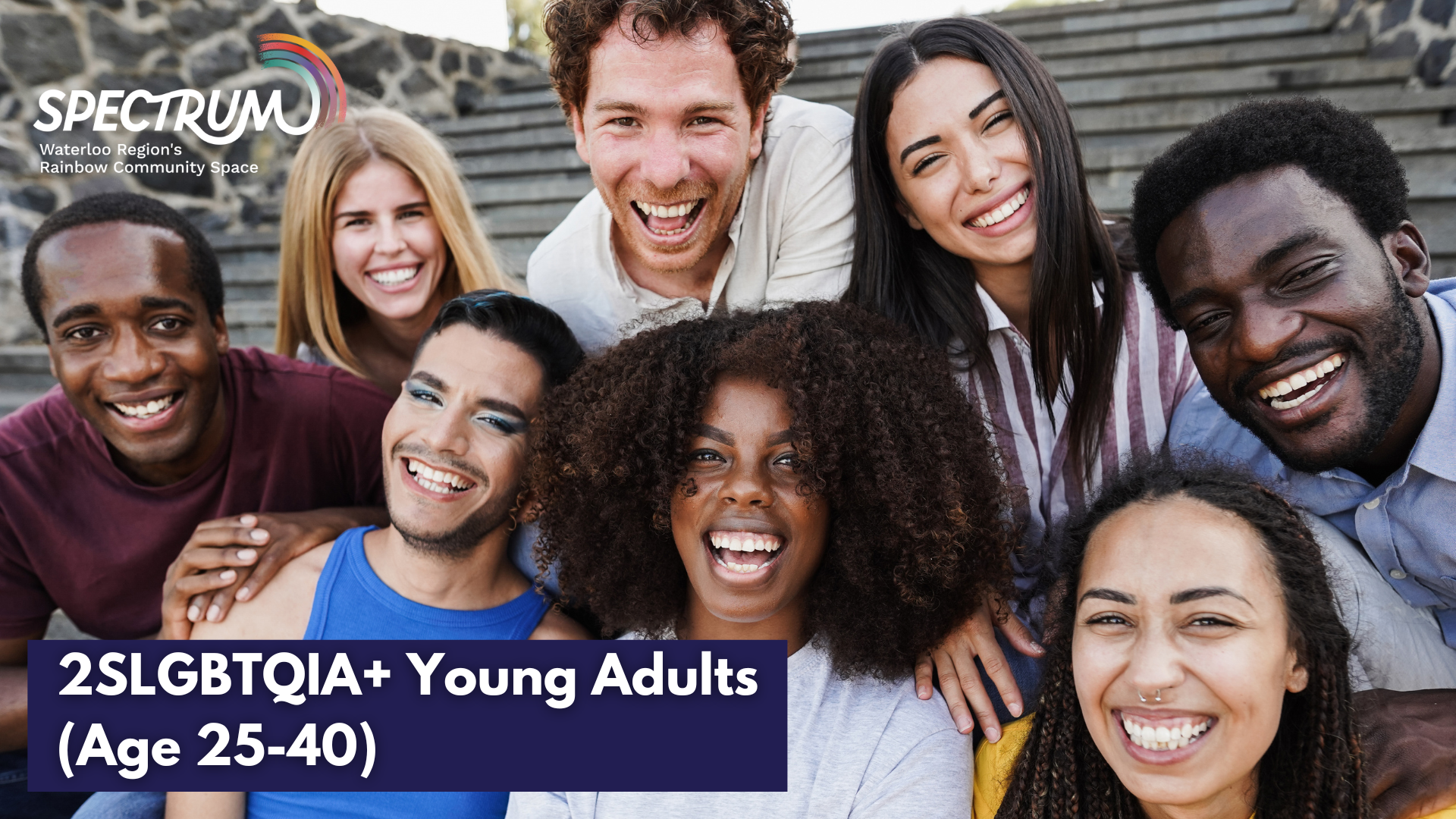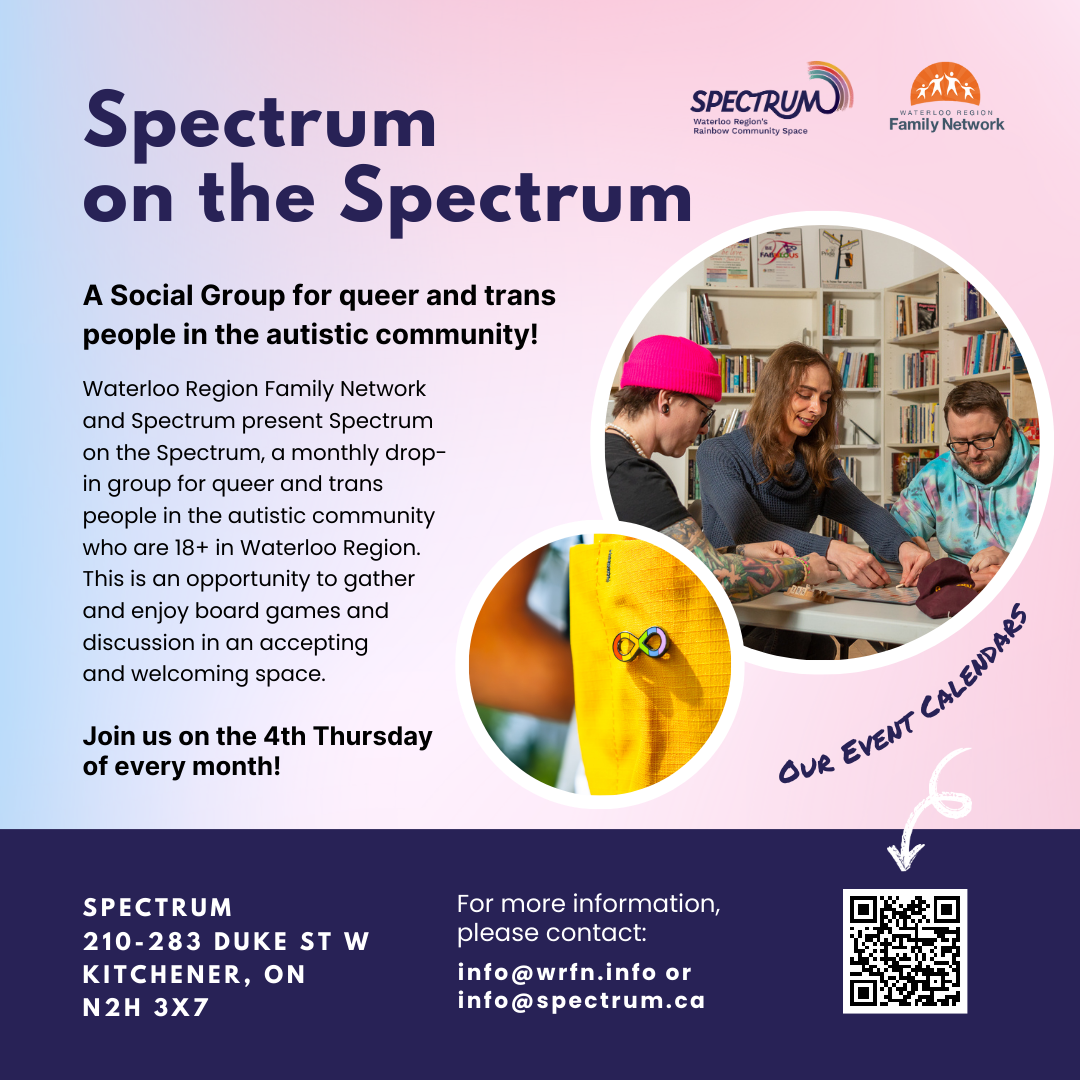Read our territorial acknowledgment | Telephone: 226.779.9695 | email us
Check out our calendar of Spectrum Events here!
Spectrum has a number of support groups and social programs to help 2SLGBTQIA+ people form friendships and connections within the community in order to reduce the isolation that 2SLGBTQIA+ people experience and expand their network of support.
New to Spectrum groups? See our guidelines for groups participants.
Please check the calendar for details on whether groups are happening in-person, virtually, or both!
Ask the group facilitator if you need a GRT card to help you travel to us.
Spectrum Support Groups
Affirming Families
This monthly peer support group offers a safe and welcoming space for parents and other caregivers of transgender, non-binary, and gender-diverse children and youth at any stage of their journey. Facilitated by experienced leaders, including a registered social worker, the program provides an opportunity to share experiences, receive guidance, and build community with others. The group focuses on offering emotional support, practical advice, and a deeper understanding of gender diversity to empower families and foster stronger connections. This group meets on the first Tuesday of each month.
Queer Women's Group
This group is open to all (cis, trans, non-binary, and intersex) individuals who identify with queer womanhood or non-binary experiences. It offers a supportive space for exploring and sharing personal experiences, living the questions, embracing choice and change, and fostering collective reflection. The group meets on the second Tuesday of every month.
Fabulous 40s
ON HOLD
The Fabulous 40s group meets at Spectrum and on Zoom on the second Saturday of each month from 4-6pm. This group is for 2SLGBTQIA+ people in Waterloo Region who are navigating the unique challenges and joys of the 40s! Join us to connect and chat about whatever's on your mind.
Gay and Bi Men’s Hangout
ON HOLD - Let us know if you're interested in volunteering to make this program happen!
Join us for a casual drop-in hangout where cis and trans gbMSM (gay and bisexual men, and men who have sex with men) can meet, chat, ask questions, get community resources, pick up safer sex materials, and access FREE rapid HIV testing.
Bi & Pan Space
Bi & Pan Space meets at Spectrum and on Zoom on the third Tuesday of each month from 7-9pm. This group is for people in Waterloo Region who identify on the Bisexual and Pansexual spectrum(s). Join us to connect with other Bi/Pan people and chat about whatever's on your mind.
BRIQ House
BRIQ House is Spectrum's monthly group for Black, Indigenous, and other Racialized Queer folks in Waterloo Region! Come meet for for discussions and community building. We connect both in-person at Spectrum and virtually on Zoom. Plus, we'll have food! No registration needed, just drop-in.
PFLAG
Spectrum provides administrative support for the local PFLAG Chapter’s Parents, Family & Friends Support Group, which focuses on topics of interest to parents, family and friends of 2SLGBTQIA+ individuals. This group generally meets on the third Tuesday of the month from 7-9 PM. (This group is 18+)

Transgender Support Groups
Spectrum offers a number of peer support groups for transgender and gender variant people, including but not limited to: transgender, non-binary, agender, Two Spirit, and beyond. Visit our Transgender Services page for details. (These groups are 18+)
Rainbow Newcomers Connect
A group where people from diverse cultures gather together at Spectrum to discuss what it is like to be 2SLGBTQIA+ across the world. We meet on the afternoon of the second Sunday of the month from 4-6pm. (This group is 18+)

Youth (18-30) Peer Support Group
Spectrum offers a weekly group for 2SLGBTQIA+ youth aged 18-30. This is an opportunity for young people to connect for discussions, networking, and fun with a goal of increasing participants' sense of belonging and mental wellness. The group meets weekly on Tuesdays at 7pm. We have free snacks! (This group is 18+)
Note: In July/August, groups will be bi-weekly. Check the event calendar for details.
groups for youth 12-18 can be found at OK2BME here

Young Adults (25-40) Discussion Group
Spectrum offers a monthly group for 2SLGBTQIA+ young adults aged 25-40. This is an informal group to meet with other queer adults for discussion and networking. The group meets monthly on the fourth Thursday at 7pm. We have free snacks!

Ace & Aro Space
Ace & Aro Space meets on the fourth Wednesday of each month from 7-9pm. This group is for people in Waterloo Region who identify on the Asexual and/or Aromantic spectrum(s). Join us to connect with other Ace/Aro people and chat about whatever's on your mind. (This group is 18+)
Spectrum Prime (ages 50+)
Spectrum Prime is a discussion group for 2SLGBTQIA+ adults aged 50+. We see things differently as we age. Priorities shift. Social circles change. Please join us for a social and discussion group for older 2SLGBTQIA+ identified adults. This group meets on the first and third Wednesdays of the month.
Spectrum on the Spectrum
A social group for queer and trans people in the autistic community! Waterloo Region Family Network and Spectrum present Spectrum on the Spectrum, a monthly drop-in group for queer and trans people in the autistic community who are 18+ in Waterloo Region. This is an opportunity to gather and enjoy activities including board games, crafts, colouring, and discussion in an accepting and welcoming space. Games and materials will be provided, but participants are welcome to bring in their own activity/art supplies if they would like.
Join us on the 1st Sunday of every month! Visit the calendar for details.


